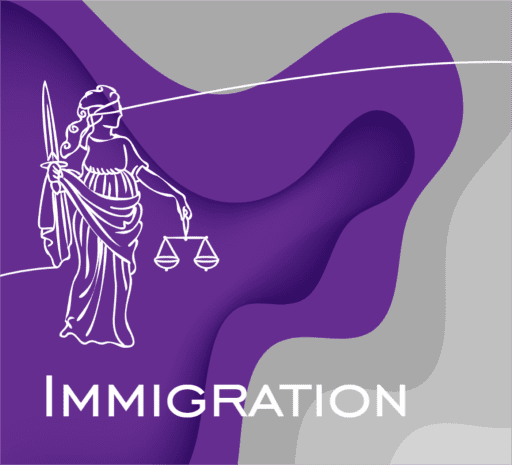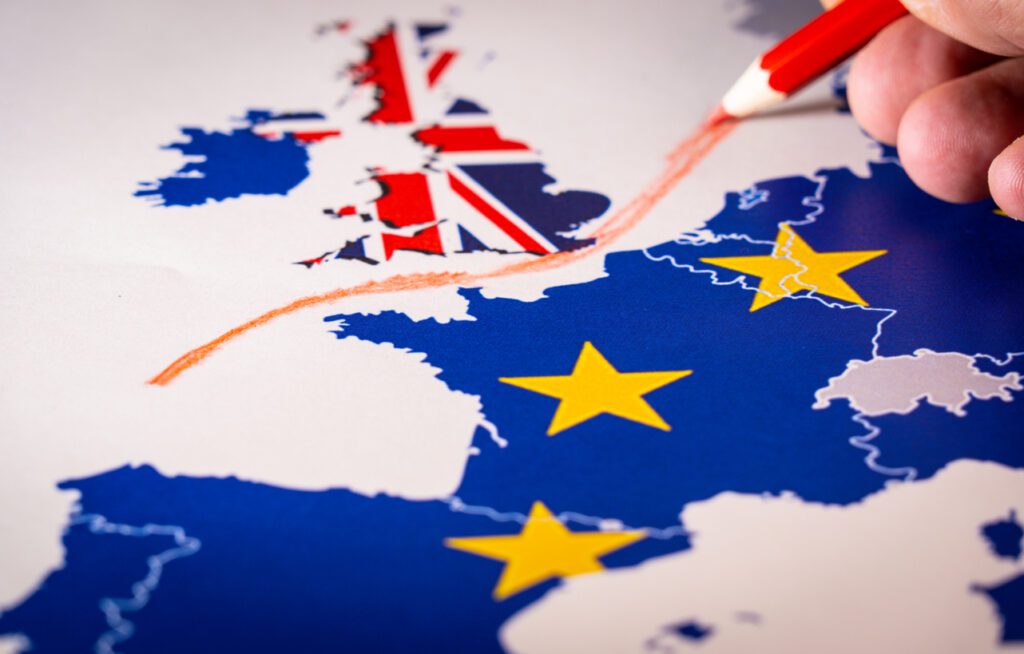This glossary has been designed to provide a brief yet informative overview of some of the most common terminology you may encounter in immigration law.
However, the terms set out below are not to be interpreted as comprehensive legal advice or guidance, but instead a simplified definition of the respective terms. Contact a member of the team at Aristone Solicitors if you have any questions regarding any aspect of immigration law or legal terminology in general.
A
Adopted
An adopted child is an individual who has become the legal child of parents or a parent that did not produce the child biologically. In Great Britain, a court order under the terms of the Hague Convention must be obtained to legally recognise adoption. Some foreign adoption orders are recognised in the United Kingdom, though recognition varies from one overseas country to the next.
Approved education provider
An approved education provider is a service that has received Home Office approval to provide education to students in Great Britain. They may provide education for adults, for children or for both.
Asylum
The term ‘asylum’ refers to the protective status given by a country to a refugee fleeing their original country of residence. Asylum is officially awarded under the 1951 United Nations Convention Relating to the Status of Refugees. Qualifying for asylum means first proving that you cannot safely go back to your home country.
B
Biometrics
The vast majority of passports produced and issued today use biometrics to enable computers to recognise the passport holder from their individual characteristics, such as their fingerprints or a sample of their handwriting.
Border
The boundary between one territory and another is known as a border, which depending on the two respective nations could be an open border (like within the EU) or a closed border (between the EU and the United Kingdom).
British citizen
In order to become a British citizen, you need to have a close connection with the United Kingdom in the form of birth, marriage, adoption, registration, dissent or naturalisation. Full British citizen status enables the respective individual to access all the benefits and protections afforded to the public by the UK government.
British dependent territories citizenship
There are a number of British territories overseas, whose citizens are referred to as the British Overseas Territories citizens – previously known as British dependent territories citizens. Qualification for British Overseas Territories citizenship follows the same rules as standard British citizenship.
British national
If you have any form of British status, you are considered a British national. Nevertheless, there are six different types of British nationality – British citizenship, British overseas citizenship, British Overseas Territories citizenship, British protected person, British subject, and British national (overseas).
British national (overseas)
A now redundant term as it is no longer possible to become a British national (overseas).
British overseas citizen
A British overseas citizen is an individual connected with former British Colonies who doesn’t obtain full citizenship of their new country.
British Overseas Territories citizen
You are considered a British Overseas Territories citizen if you have a connection with a British overseas territory due to your parents or grandparents being born, naturalised or registered in the respective territory.
British Overseas Territories
Britain’s overseas territories include Anguilla, Bermuda, British Antarctic Territory, British Indian Ocean Territory, Cayman Islands, Falkland Islands and Dependencies, Gibraltar, Montserrat, Pitcairn, Henderson, Ducie and Oeno Islands, St Helena and Dependencies, the Sovereign Base Areas of Akrotiri and Dhekelia, Turks and Caicos Islands, and the Virgin Islands.
British subject
Most people connected to the United Kingdom in some way were considered to be British subjects until 1949. The term is used very rarely these days, though continues to refer to a form of British nationality.
By descent
This applies to British citizenship being obtained by birth or adoption, through parents that are British citizens.
C
Citizenship ceremony
A citizenship ceremony is carried out at a local authority level for the registration of births, marriages and deaths. This is also the event at which successful applicants are awarded full British citizenship status.
Civil partner
A civil partnership is entered into when two same-sex individuals choose to join themselves in the same legal sense as a traditional marriage. It is a form of legal recognition of their status.
Common travel area
In the United Kingdom, the common travel area or ‘free movement’ area extends from England to Scotland to Wales to the Channel Islands to Northern Ireland and the Republic of Ireland. No specific immigration checks are required to travel between these areas.
Commonwealth
A voluntary association consisting of 53 independent nations that have chosen to cooperate for the mutual benefit of the Commonwealth as a whole.
Comprehensive sickness insurance
In order to receive permission to live and work in the United Kingdom as a foreigner, you may be required to show that you have sufficient medical insurance to cover any treatment you may need during the course of your stay.
Confirmation of acceptance for studies
If you are planning a move to the United Kingdom to attend a college or university, you may be required to provide confirmation of acceptance in the form of a virtual document to support your immigration application.
D
Declaration of renunciation
A formal declaration that you wish to surrender your British citizenship.
Dependant
An individual who depends on another individual financially, which may be a child, a partner, a spouse or a family member.
Discretionary leave to remain
When exceptions are made to allow individuals to stay in the UK for non-standard reasons, it is referred to as discretionary leave to remain.
E
e-Borders
Electronic border control enables people to enter and exit the United Kingdom without necessarily coming face to face with a Border Control Officer. Passports and documents are scanned and analysed automatically.
Earnings
You average annual earnings may affect your eligibility to legally enter and remain in the United Kingdom longer-term.
English language
There are several application types and immigration processes that require the applicant to have a good grasp of English language. You may be required to demonstrate sufficient reading and writing skills for your application to be processed.
Entrepreneur start date
Individuals granted entry to the United Kingdom or Tier 1 Entrepreneurs are logged with an entrepreneur start date, which is the date of their entry to the UK.
Entry clearance
In order to gain legal entry to the United Kingdom, you will typically be required to produce one of the following entry clearance documents:
- Visa
- Entry certificate
- EEA family permit
- Exempt vignette
ESOL
Courses provided for individuals who lack sufficient English language skills to live and work in the UK are referred to as English for Speakers of Other Languages – or ESOL.
ESOL Entry 3
In order to successfully pass the knowledge of life in the UK test, applicants must possess certain English language reading and writing skills known as EOSL Level 3.
European Economic Area
The current members of the EEA are Austria, Belgium, Bulgaria, Croatia, Cyprus, the Czech Republic, Denmark, Estonia, Finland, France, Germany, Greece, Hungary, Iceland, the Republic of Ireland, Italy, Latvia, Liechtenstein, Lithuania, Luxembourg, Malta, the Netherlands, Norway, Poland, Portugal, Romania, Slovakia, Slovenia, Spain, Sweden and the UK.
European Union
The current members of the European Union are Austria, Belgium, Bulgaria, Croatia, Cyprus, Czech Republic, Denmark, Estonia, Finland, France, Germany, Greece, Hungary, Irish Republic, Italy, Latvia, Lithuania, Luxembourg, Malta, Netherlands, Poland, Portugal, Romania, Slovakia, Slovenia, Spain, Sweden and (perhaps temporarily) the United Kingdom.
Experience you have in the United Kingdom
In accordance with the points-based system to enter the United Kingdom to study, train or work, you will be assessed in accordance with any previous experience you have working or studying in the United Kingdom. For example, if you obtained a bachelor’s degree or higher in Great Britain.
F
Family member
An individual who is directly related to the main applicant – namely their partner, child or another dependant.
Freely landed
A term used in reference to individuals who entered Great Britain prior to time restrictions being imposed on immigration.
Further leave to remain
If you are provided with an extension of your permission to remain in the UK longer than the initial allocation, this is referred to as further leave to remain.
G
Giving up your citizenship
Also known as renouncing, this is when an individual voluntarily surrenders their citizenship of one or more countries to obtain citizenship elsewhere.
Good character
Your background and character in general may be assessed to determine your eligibility for citizenship or entry to the United Kingdom for a variety of purposes.
H
Highly Skilled Migrant Programme
Also referred to as the HSMP, this now-defunct programme enabled individuals from outside the EEA who were considered to have exceptional skills above the norm to work in the UK without the usual immigration restrictions.
L
Leave to remain
This is the official term used in reference to official permission to remain in the United Kingdom, permanently or temporarily.
Legal adoption
The legal adoption of a child occurs when an official court order under the Hague Convention is obtained to declare the child’s new non-biological parents his or her official Guardians.
Legal representative
A qualified solicitor or legal advisor who offers support and representation for legal matters.
Limited leave to remain
Permission provided by the UK government to remain in the United Kingdom for a temporary period of time, as stated on the visa.
M
Maintenance
Restrictions are placed on certain immigration applications with regard to the applicant’s available funds (or maintenance) at the time of application. The applicant may be required to prove they have a certain amount of money available to qualify.
N
National Recognition Information Centre
This is the official source of information for determining how qualifications gained overseas compare and contrast with similar qualifications earned in the United Kingdom.
Nationality
Most people are nationals of the countries they were born in, though it’s also possible to hold more than one nationality.
Naturalisation
When British citizenship is obtained by an individual who doesn’t qualify for automatic citizenship through the normal channels, this is referred to as naturalisation. For example, if you are married to a British citizen and have lived in the country for at least three years, you may qualify for naturalisation.
Non-visa national
Non-visa nationals are individuals who are allowed to travel to the United Kingdom and stay for no more than six months, without the requirement to obtain a visa. Stays exceeding this time will require visas.
O
Oath of allegiance
An official declaration of allegiance to the British monarch, in which the applicants swears to faithfully support the reigning king or queen at the time.
Office of the Immigration Services Commissioner (OISC)
The watchdog overseeing the performance and good practice of immigration advisers and authorities across the UK.
Ordinary residence
The amount of continuous time you have spent in the country – legally and voluntarily – which you can provide evidence for as part of your application.
Otherwise than by descent
Applies when British citizenship is awarded to an individual who didn’t naturally obtain citizenship through their parents or grandparents.
P
Points-based assessment
Applications for entry and residence in the United Kingdom are often assessed on a points scale. A certain number of points must be earned across a variety of categories for the application to be successful.
Points-based system
The system that determines the number of points needed to gain entry to the United Kingdom to work, study or train.
Public funds
An official term that refers to the funds used to provide benefits (or social welfare payments) to qualifying individuals.
Q
Qualifying period
This refers to the period of time you need to reside in the United Kingdom – legally and continuously – before you can qualify for British citizenship. The qualifying period is typically three years or five years, depending on your status.
R
Registration
The official registration process by which an individual legally becomes a British citizen or obtains British national status. The registration of the status change formalises the application and the decision reached.
Registration or professional accreditation
If you gained your qualifications and professional certificates to perform a certain practice abroad, professional accreditation may be required to allow you to practice in the UK.
Renunciation
The official term for giving up your citizenship.
Right of abode
The legal right to live and work in Great Britain.
S
Settled status
A resident of the United Kingdom with no restrictions on the terms of their residency or how long they may stay.
Settled worker
An individual who enters the United Kingdom with the authorisation to work in the UK and remain indefinitely.
Spent convictions
A conviction is considered ‘spent’ after a certain amount of time after the date of the conviction. Depending on the nature and severity of the conviction, it may be considered or disregarded as part of your application process.
Switching
The process of extending your legal permission to remain in the United Kingdom by switching to a different immigration category, without leaving and re-entering the country.
T
Tier 1 (Entrepreneur)
A points-based system for entering the UK under the requirement that you have the skills, experience and funds required to successfully set up a business.
Tier 1 (Exceptional Talent)
A points-based system for gaining legal access to the UK having been endorsed as an exceptional talent in your field. Common examples of which include scientists, doctors, researchers, artists and so on.
Tier 1 (General)
A previous points-based entry system to the UK that no longer applies.
Tier 1 (Graduate Entrepreneur)
A points-based system open to graduates who have been officially recognised as having a workable idea for a business and the means to establish it.
Tier 1 (Investor)
International Investors may qualify for entry to the United Kingdom upon confirming and demonstrating their intention to invest at least £2 million in the country.
Tier 2 (General) – skilled worker
This points-based immigration system focuses on the skills of the applicant, with the requirement of having been offered a specific and qualifying job by a UK employer.
Tier 2 – intra-company transfer
Applies when companies transfer employees within the same organisation from overseas nations into the UK.
Tier 2 – religious worker
Points-based entry system for religious workers, whom must also be skilled individuals with a concrete job offer in the UK.
Tier 2 – sports worker
A points-based immigration system open to sports workers and sports persons, who must be skilled individuals with a confirmed offer of employment.
Tier 4
Open to overseas applicants looking to enter the United Kingdom to study at an approved educational institution.
Transit
Applies when an individual passes through Great Britain en route to their final destination, though doesn’t stay in the country.
Treaty rights
The rights of all citizens of the European Economic Area which allows free movement into and out of the United Kingdom, along with the opportunity to work in the UK on the condition they will not become a burden on the country’s Financial System.
U
United Kingdom
The territories of England, Wales, Scotland and Northern Ireland. The Isle of Man and the Channel Islands are formally considered part of the United Kingdom, though implement their own individual immigration policies and laws.
V
Visa national
An individual visiting the United Kingdom who requires a visa to legally enter the country. Visa application processes may need to be completed long in advance of travel, or can be addressed in-transit or airside.
Y
Youth mobility scheme
A scheme open to younger applicants from a variety of qualifying countries, enabling them to live and work in the United Kingdom for a maximum period of two years.



